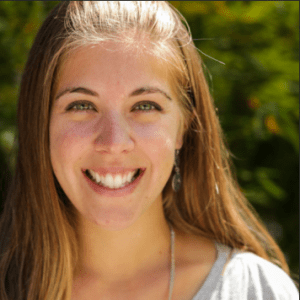
What were some of the factors that drew you to USC to pursue your PhD?
I transferred into USC Mann from the PIBBS program at USC, which was a one-year introductory program. I chose PIBBS because I wasn’t sure what kind of research I wanted to pursue, and this allowed me to explore various options. I knew I wanted to pursue biomedical research, and I liked that USC has a separate campus for health sciences. I knew that it was a school that would have plenty of resources and great faculty based on its reputation.
After rotating in a different lab, I discovered the school through one of the PIBBS-sponsored seminars —It hadn’t occurred to me to apply directly or even consider graduate programs in the school. However, once I started working there I immediately liked the atmosphere and decided to stay and transfer into the Clinical and Experimental Therapeutics Program. At that time the program was basically brand new, and Dr. Annie Wong-Beringer recommended me for it and accepted me into her laboratory.
How would you describe the environment at USC Mann?
The main reason I decided to join the school was the congenial atmosphere and academic environment. I noticed from the first few days I was there that it was a tight-knit community of students and faculty–everyone seemed to know and like each other. After only a short time there I felt like I belonged to a community; faculty greet students by name in the hallways, and the grad students all know each other. Even from the beginning, I could tell that the faculty genuinely care about each student- not just their own. It was really a unique environment in that sense, which made it a great place for all the students.
How did the resources and faculty members at USC help you achieve your goals?
Being on the health sciences campus, there are amazing resources for research. With Zilkha Neurogenetic Institute, and the Broad Stem Cell Center, plus Keck School of Medicine, there was always equipment or expertise available to help grad students’ research projects. In addition, I was able to take classes within and outside the school that really prepared me to graduate and gave me a very well rounded education. Also, the fact that the school provided $1,000 per year for each grad student to attend conferences was absolutely essential to the graduate school experience and very helpful- I’ve found out not all departments do that.
Can you describe some specific highlights of your experience in the program?
I didn’t realize how much the department really provided to us until I learned about other programs in other schools that did not offer anywhere near as much. We had so many gatherings, awards, social events, research events, etc., that really made it memorable and forged bonds between the students and the faculty. First, traveling to, attending and presenting at a large annual research meeting every year, with the support from the department, was really one of the major highlights of graduate school. Not everyone gets that opportunity, and students in my program were able to attend the meeting of their choice every year.
Within the school, there were many opportunities for career development as well as social gatherings. Every 2-3 years there was a departmental retreat, in which students and faculty came together at a resort, where we had scientific talks, poster sessions, and opportunities for socializing. Those retreats really stand out as some of the best times in grad school, getting to know the faculty and students in a relaxed atmosphere.
The atmosphere for grad students in general was just really great. Everyone knew everyone else, and most people were close friends. Our social organization, the Pharmacy Graduate Alliance, provided many social events and gatherings, such as coffee hours and cultural events in the city. USC also has the Graduate Student Government (GSG) that provides funding for conferences as well as many social events throughout the year. All of these things made grad school enjoyable and allowed for grad students to get to know each other, which is very important, and probably unique to USC.
Would you share a bit about your current work at UCLA? How did your experience at USC prepare you for what you are doing now? Where do you plan to be 10, 20 years in the future?
I’m a postdoc at UCLA and work in the School of Dentistry, studying the oral microbiome. Coming from the school prepared me for working in another professional school, in which I work alongside clinicians to do translational research. A lot of my current projects are translational in nature; I am writing IRB proposals and working with dentists to develop clinical studies to investigate the microbes that live in the oral cavity. In addition, I work with dental companies to test their products in the laboratory and in patients. I am really using all the skills I learned in grad school, from the bench research, to the communication skills, to the regulatory science and translational skills. I definitely would not have gotten my current position if I didn’t come from the Clinical and Experimental Therapeutics program and have the background training in translational science, including some regulatory affairs. Because of that, now I am going to be well prepared to apply for industry jobs in those areas.

